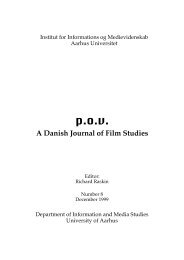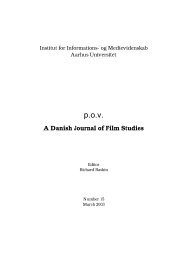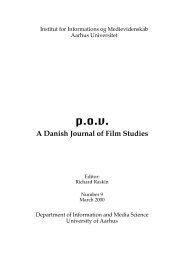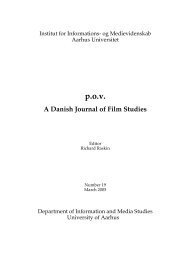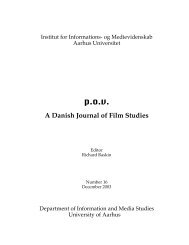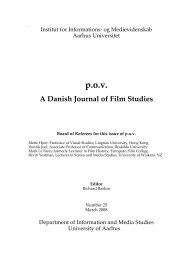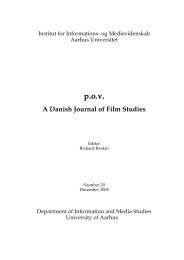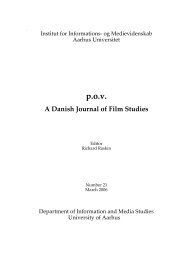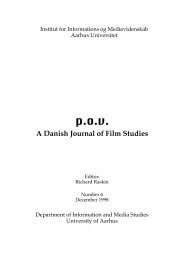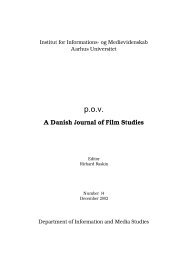The Face of Time - POV - Aarhus Universitet
The Face of Time - POV - Aarhus Universitet
The Face of Time - POV - Aarhus Universitet
Create successful ePaper yourself
Turn your PDF publications into a flip-book with our unique Google optimized e-Paper software.
126 p.o.v. number 13 March 2002<br />
<strong>The</strong> editing phase<br />
Basically, the editing principles <strong>of</strong> fiction and documentary are the<br />
same. However, there are more possibilities when editing a documentary,<br />
as you are not bound by causality in the same way and<br />
thus do not need to tell your story in a certain way, which gives you<br />
a high degree <strong>of</strong> freedom; you should therefore consider alternative<br />
ways <strong>of</strong> piecing the material together. Try to maintain a certain<br />
sensitivity towards the raw material in order to avoid forcing it in<br />
the wrong direction because you are too focused on the story you<br />
had planned to tell.<br />
<br />
Rather than throwing the good story or the good feeling overboard,<br />
it might be better to give up on style, aesthetics or beautiful pictures.<br />
In his book In the Blink <strong>of</strong> an Eye. A Perspective on Film Editing (1995),<br />
Walter Murch says (in relation to the fiction film) that in order for a<br />
film to be fundamentally interesting, the main thing to strive for in<br />
the editing room is the evoking <strong>of</strong> emotion. <strong>The</strong>n, secondarily,<br />
comes the story. This principle <strong>of</strong> priority could be applied to the<br />
documentary as well (although from time to time it can be necessary<br />
to deviate from even the best <strong>of</strong> principles).<br />
<br />
In the above-mentioned book Walter Murch gives a piece <strong>of</strong> advice<br />
that is not only useful when editing a fiction film:<br />
...one way <strong>of</strong> looking at the process <strong>of</strong> making a film is to think<br />
<strong>of</strong> it as a search to identify what – for the particular film you<br />
are working on – is a uniquely 'bad bit' (Murch, 1995, p. 11).



